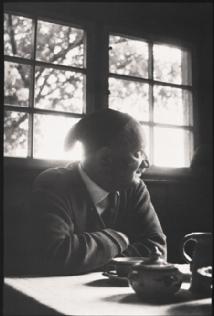Syllabus
Overview
We focus on Heidegger's writing about poetry, poetics and rhythm to explore ideas such as being and existence; care; spirit; nature; as well as Heidegger's contributions to ecocriticism, anti-capitalist/anti-technic philosophy and theology. We also address Heidegger's rejection of 'science' or 'prosody' as models of thinking alongside critics who have developed or nuanced his work, such as Gerald Bruns and J. H. Prynne.
Each seminar is structured around a series of extracts from Heidegger's writings and the works of one poet. Keywords to help you read Heidegger will be added to a module blog each week.
Poets studied
Four poets dominate Heidegger's thinking: Friedrich Hölderlin, Rainer Maria Rilke, Arthur Rimbaud and Georg Trakl. We read these poets alongside other poets that speak to or explore similar themes, including William Wordsworth, Gerard Manley Hopkins, Pablo Neruda, Elizabeth Bishop, J. H. Prynne, and Jorie Graham.
Key essays
‘Introduction to Metaphysics’ (1935)
‘The Origin of the Work of Art’ (1935-36)
‘Hölderlin and the Essence of Poetry’ (1936)
‘The Age of the World Picture’ (1938)
‘Poeticizing the Essence of the Rivers: the Ister Hymn’ (1942)
‘The Thinker as Poet’ (1947)
‘What are poets for’ (1946)
‘The Question Concerning Technology’ (1949)
'Letter on Humanism' (1949)
‘Building, Dwelling, Thinking’ (1951)
‘Language’ (1950)
‘Language in the Poem’ (1953)
‘Words’ (1958)
‘Poetically Man Dwells’ (1951)

